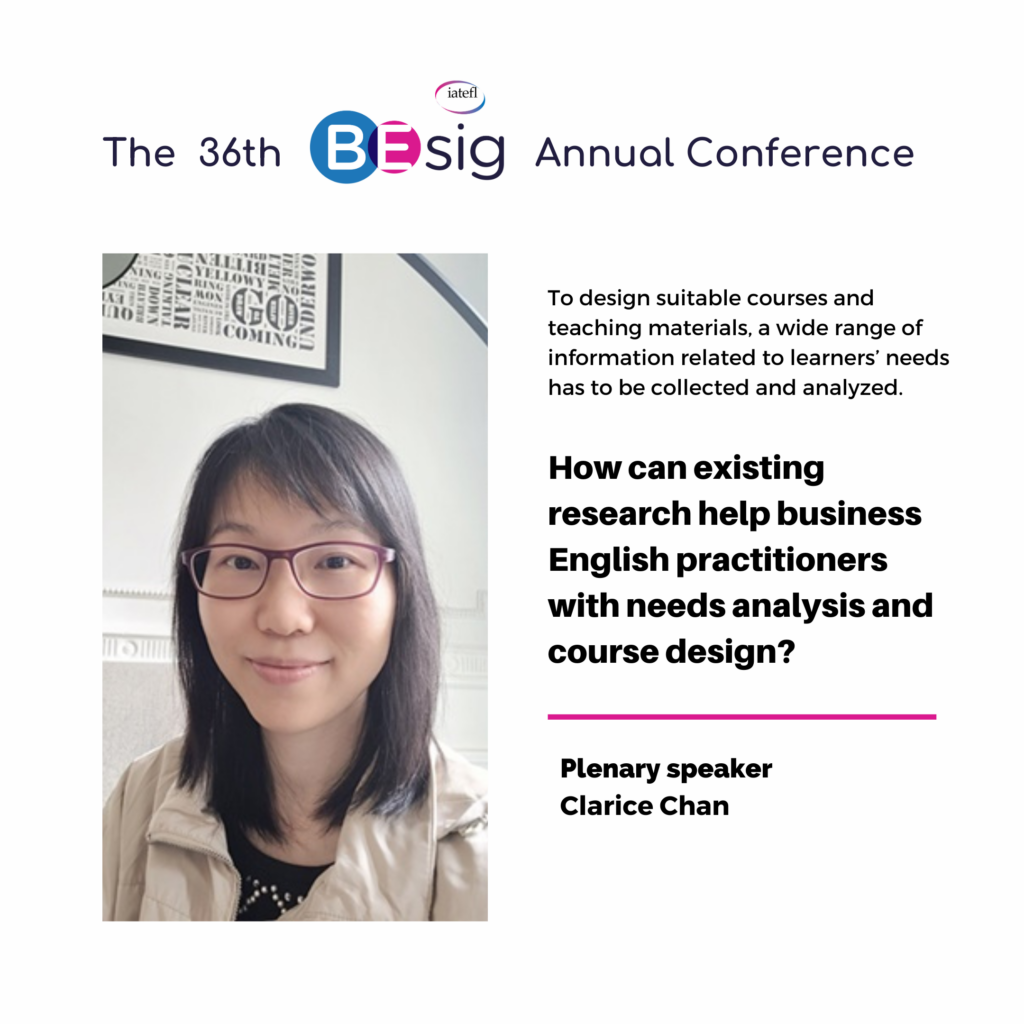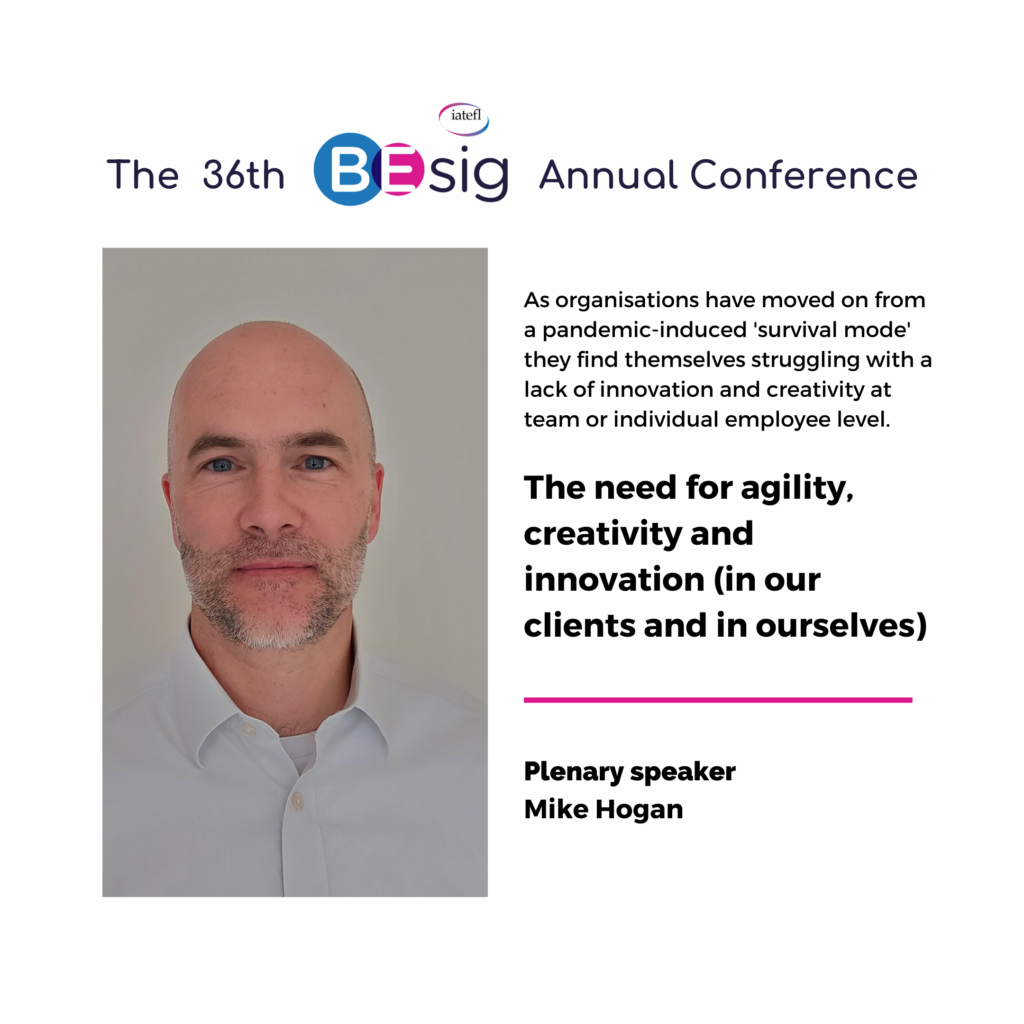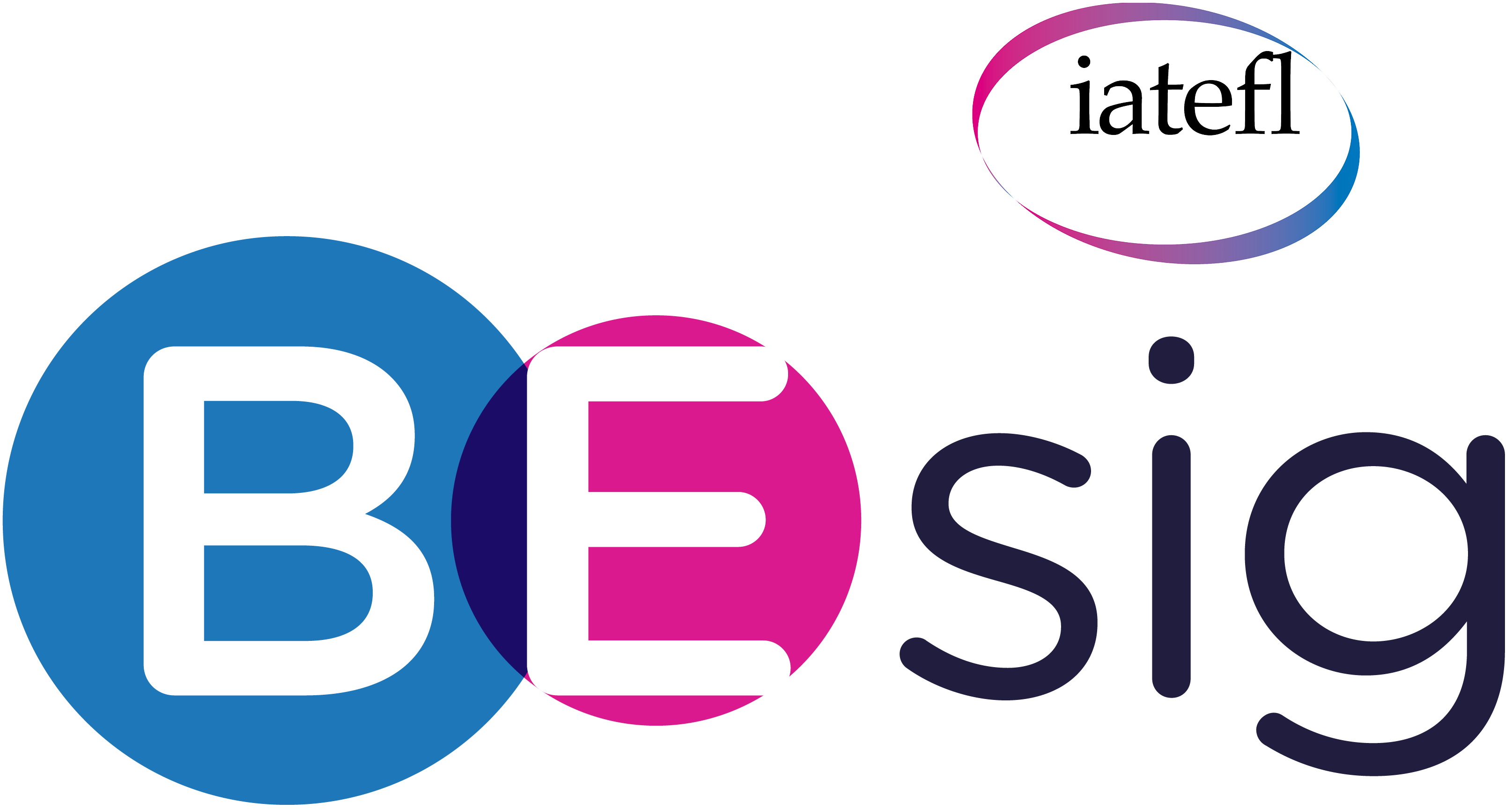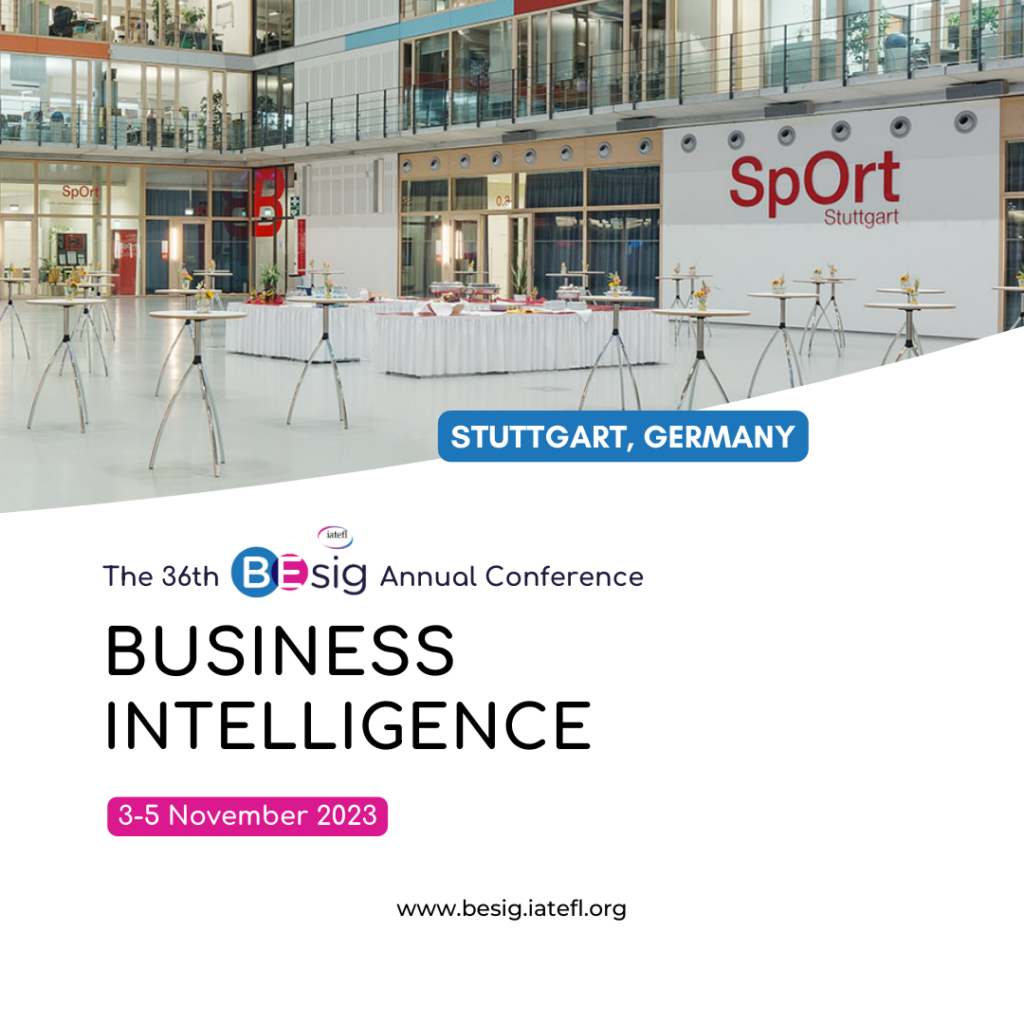Download the conference programme
The 36th IATEFL BESIG Annual Conference
We are very excited to announce that the 36th IATEFL BESIG Annual Conference will take place in Stuttgart, Germany from 13:00 CET on Friday, 3 November to 14:00 CET Sunday, 5 November 2023.
- Call for Proposals closed on Friday, 30 June at 16:00 UK time
- Early bird registration is open until Friday, 29 September at 16:00 UK time.
- Online registration closes on Friday, 13 October at 16:00 UK time.
- After you register, you will receive a confirmation email. Please check your spam folder as well. If you do not receive the email, please contact [email protected].
Download the Call for Proposals and Guidelines pdf .
The Conference Programme
The Quick-reference Session Planner
Happy to announce our plenary speakers
This year, we welcome two great plenary speakers to our conference. Clarice Chan and Mike Hogan. Read about them below. Two more reasons to join us in Stuttgart.

Abstract
Identifying learners’ needs is an important part of the work of business English practitioners. To design suitable courses and teaching materials, a wide range of information related to learners’ needs has to be collected and analyzed. In practice, however, course designers and teachers often do not have the time and resources to gather every type of information relevant to their learners’ needs, such as information about the way language is used in the target situation and effective ways of teaching the language and skills that enable learners to handle their work in English. As a major branch of ESP, business English is an area that has attracted much research over the past few decades. The large number of existing studies and their findings could be a valuable source of information and insights for business practitioners in their needs analysis and course development work.
In this plenary, I will illustrate how findings from research studies of business English can be used to inform needs analysis and course design. I will present the framework for needs analysis that I proposed in an award-winning article (Chan, 2018) and show with recent examples how insights from existing research on both the discourse and the pedagogical aspects of business English can help practitioners to obtain different types of information about learners’ needs and to supplement what they can find from their in-house needs analyses. Overall, I will show how keeping abreast of research can help business English practitioners not only save time but also teach in more innovative and research-informed ways.
Reference:
Chan, C. S. C. (2018). Proposing and illustrating a research-informed approach to curriculum development for specific topics in business English. English for Specific Purposes, 52, 27-46. doi: 10.1016/j.esp.2018.07.001
Bio
Clarice Chan, PhD, is a researcher and practitioner in the areas of ESP, EAP and business communication. She supervises doctoral students in TESOL at the University of St Andrews, UK. Her co-edited book, New Ways in Teaching Business English (TESOL, 2014), was a finalist in the British Council’s 2015 ELTons Award for Teacher Innovation. Her 2018 paper, “Proposing and illustrating a research-informed approach to curriculum development for specific topics in business English”, published in English for Specific Purposes, won an Outstanding Article on Business Communication Award from the Association for Business Communication, USA.

Abstract
As organisations have moved on from a pandemic-induced 'survival mode' they find themselves struggling with a lack of innovation and creativity at team or individual employee level. The dust has settled, and companies are vying for position and to (re-)establish themselves. Past habits that were formed are now making them less competitive in existing markets and making it tougher to branch into new markets. So, how did we get here?
During the pandemic, organisations and the people within them became largely transactional in their nature and activities. Among other consequences, this led to less cross-team communication and collaboration within organisations, less creativity, less innovation and more of a focus on ‘getting the job done’. Siloism has increased, networks have broken down, and new joiners find themselves struggling to build their networks in the post-pandemic hybrid-working world. Could the same also be said of the (business English) training sector? Many of us may have also switched to ‘survival mode’, sticking to what we know, and keeping our heads above water, but has this come at the cost of our own innovation and creativity in terms of what we offer to our clients and participants as well as the in-training experience we deliver?
Mike has experienced the trends described above from multiple perspectives; as an active trainer, directly through his course participants, as an organisational development consultant and project coach, and through his close links with business leaders across a range of sectors such as manufacturing, pharma and banking & finance. This talk will track the development of this trend, look at where we are now (both client-side and as trainers), draw conclusions and present a range of suggestions for how we, as trainers, can become more agile, creative and innovative as well as supporting our participants and their organisations to do the same.
Bio
Mike Hogan is a leadership, team and people development trainer and coach with a focus on enhancing individual and group performance in international contexts. Mike has over 20 years' experience across 25+ countries supporting leaders and teams to succeed through effective communication and collaboration across numerous corporate sectors, as well in the institutions of the EU. Business English titles co-authored by Mike include ‘Basis for Business’ (Cornelsen) and ‘Business English for Beginners’ (Cornelsen), which won the 2017 IATEFL BESIG David Riley Award for Innovation, as well as ‘Business Partner’ (Pearson). He was a regular columnist for Business Spotlight magazine in Germany between 2010 and 2021.
Special discounts on hotels
Directions to the venue
Share using hashtag #besig2023

